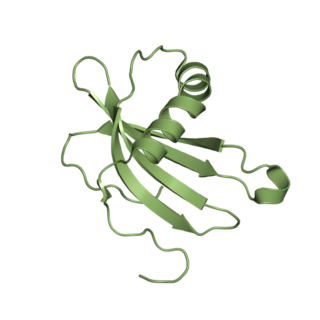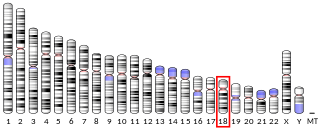| EVPL | |||||||||||||||||||||||||||||||||||||||||||||||||||
|---|---|---|---|---|---|---|---|---|---|---|---|---|---|---|---|---|---|---|---|---|---|---|---|---|---|---|---|---|---|---|---|---|---|---|---|---|---|---|---|---|---|---|---|---|---|---|---|---|---|---|---|
| |||||||||||||||||||||||||||||||||||||||||||||||||||
| Identifiers | |||||||||||||||||||||||||||||||||||||||||||||||||||
| Aliases | EVPL , EVPK, envoplakin | ||||||||||||||||||||||||||||||||||||||||||||||||||
| External IDs | OMIM: 601590; MGI: 107507; HomoloGene: 1506; GeneCards: EVPL; OMA:EVPL - orthologs | ||||||||||||||||||||||||||||||||||||||||||||||||||
| |||||||||||||||||||||||||||||||||||||||||||||||||||
| |||||||||||||||||||||||||||||||||||||||||||||||||||
| |||||||||||||||||||||||||||||||||||||||||||||||||||
| |||||||||||||||||||||||||||||||||||||||||||||||||||
| |||||||||||||||||||||||||||||||||||||||||||||||||||
| Wikidata | |||||||||||||||||||||||||||||||||||||||||||||||||||
| |||||||||||||||||||||||||||||||||||||||||||||||||||
Envoplakin is a protein that in humans is encoded by the EVPL gene. [5] [6] [7]
| EVPL | |||||||||||||||||||||||||||||||||||||||||||||||||||
|---|---|---|---|---|---|---|---|---|---|---|---|---|---|---|---|---|---|---|---|---|---|---|---|---|---|---|---|---|---|---|---|---|---|---|---|---|---|---|---|---|---|---|---|---|---|---|---|---|---|---|---|
| |||||||||||||||||||||||||||||||||||||||||||||||||||
| Identifiers | |||||||||||||||||||||||||||||||||||||||||||||||||||
| Aliases | EVPL , EVPK, envoplakin | ||||||||||||||||||||||||||||||||||||||||||||||||||
| External IDs | OMIM: 601590; MGI: 107507; HomoloGene: 1506; GeneCards: EVPL; OMA:EVPL - orthologs | ||||||||||||||||||||||||||||||||||||||||||||||||||
| |||||||||||||||||||||||||||||||||||||||||||||||||||
| |||||||||||||||||||||||||||||||||||||||||||||||||||
| |||||||||||||||||||||||||||||||||||||||||||||||||||
| |||||||||||||||||||||||||||||||||||||||||||||||||||
| |||||||||||||||||||||||||||||||||||||||||||||||||||
| Wikidata | |||||||||||||||||||||||||||||||||||||||||||||||||||
| |||||||||||||||||||||||||||||||||||||||||||||||||||
Envoplakin is a protein that in humans is encoded by the EVPL gene. [5] [6] [7]

Desmoplakin is a protein in humans that is encoded by the DSP gene. Desmoplakin is a critical component of desmosome structures in cardiac muscle and epidermal cells, which function to maintain the structural integrity at adjacent cell contacts. In cardiac muscle, desmoplakin is localized to intercalated discs which mechanically couple cardiac cells to function in a coordinated syncytial structure. Mutations in desmoplakin have been shown to play a role in dilated cardiomyopathy and arrhythmogenic right ventricular cardiomyopathy, where it may present with acute myocardial injury; striate palmoplantar keratoderma, Carvajal syndrome and paraneoplastic pemphigus.

Collagen XVII, previously called BP180, is a transmembrane protein which plays a critical role in maintaining the linkage between the intracellular and the extracellular structural elements involved in epidermal adhesion, identified by Diaz and colleagues in 1990.

Protein-glutamine gamma-glutamyltransferase K is a transglutaminase enzyme that in humans is encoded by the TGM1 gene.

AP-2 complex subunit alpha-1 is a protein that in humans is encoded by the AP2A1 gene.

Integrin beta-5 is a protein that in humans is encoded by the ITGB5 gene.

Cystatin-A is a protein that in humans is encoded by the CSTA gene.

Laminin subunit alpha-1 is a protein that in humans is encoded by the LAMA1 gene.

Protein-glutamine gamma-glutamyltransferase E is an enzyme that in humans is encoded by the TGM3 gene.

Periplakin is a protein that in humans is encoded by the PPL gene.

Loricrin is a protein that in humans is encoded by the LOR gene.

Beta-1-syntrophin is a protein that in humans is encoded by the SNTB1 gene.

A kinase anchor protein 1, mitochondrial is an enzyme that in humans is encoded by the AKAP1 gene.

Corneodesmosin is a protein that in humans is encoded by the CDSN gene.

Cornifin-B is a protein that in humans is encoded by the SPRR1B gene.

Dual specificity protein phosphatase CDC14A is an enzyme that in humans is encoded by the CDC14A gene.

Alpha-parvin is a protein that in humans is encoded by the PARVA gene.

Small proline-rich protein 2A is a protein that in humans is encoded by the SPRR2A gene.

Keratin, type I cuticular Ha3-II is a protein that in humans is encoded by the KRT33B gene.

Keratin, type I cuticular Ha6 is a protein that in humans is encoded by the KRT36 gene.

Sciellin is a protein that in humans is encoded by the SCEL gene.